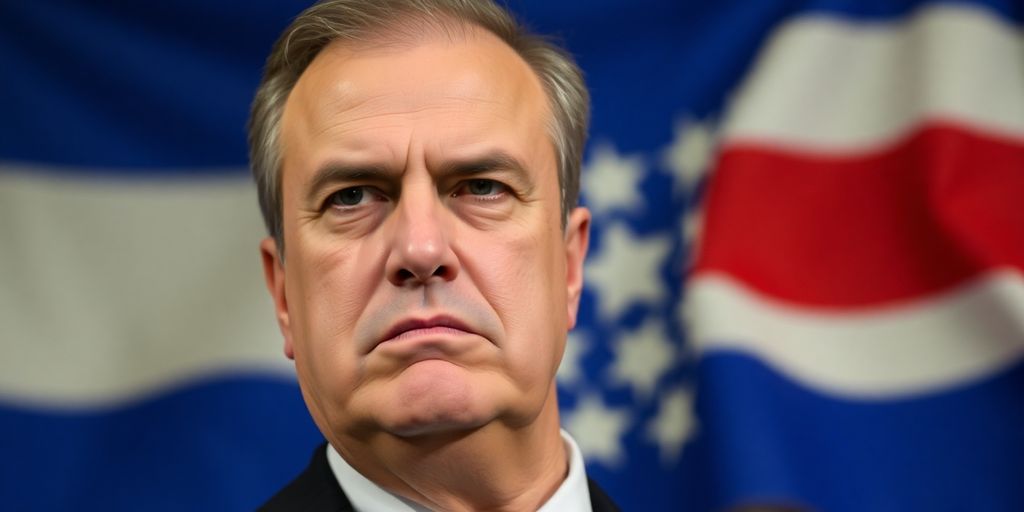Bosnia and Herzegovina is teetering on the brink of a major political crisis as Milorad Dodik, the leader of the Bosnian Serb entity Republika Srpska, escalates his secessionist rhetoric and actions. A recent court conviction against Dodik has intensified these moves, prompting international concern over the fragile peace in the region.
Dodik’s Defiance and Secessionist Stance
Milorad Dodik, President of Republika Srpska (RS), faces a one-year prison sentence and a six-year ban from public office following a court ruling for failing to obey the High Representative’s decisions. In response, Dodik and RS authorities have enacted laws that prohibit state-level judicial and law enforcement institutions from operating within the entity. Dodik has declared that Bosnia and Herzegovina "does not exist any longer" and claims the verdict is politically motivated.
International Concern and US Response
The escalating crisis has drawn significant international attention. The United States, through bipartisan legislative efforts, has introduced the "Upholding the Dayton Peace Agreement Through Sanctions Act." This legislation aims to sanction individuals undermining the Dayton Peace Agreement and threatening Bosnia’s stability. Lawmakers have expressed strong support for Bosnia’s sovereignty and warned against allowing Russia to fill any void left by a diminished US presence in the Balkans.
Deepening Crisis and Regional Instability
Experts and analysts warn that the current situation is the most severe since the Bosnian War. The RS leadership’s actions are seen as a direct challenge to Bosnia’s constitutional order and sovereignty, potentially leading to de facto secession. The crisis is causing anxiety among post-war returnees, who fear a return to the violence of the 1990s. The international community, including the EU and NATO, is closely monitoring the situation, with concerns about the potential for renewed conflict and the broader implications for regional stability.
Key Takeaways:
- Republika Srpska President Milorad Dodik has been convicted and sentenced, leading to his defiance of state institutions.
- RS authorities have passed laws to block state-level judicial and security agencies from operating within the entity.
- The US Congress is advancing legislation to impose sanctions on those undermining Bosnia’s stability.
- International actors are concerned about the escalating crisis and its potential to destabilize the wider Balkan region.
- Post-war returnees express fear and anxiety over the renewed political tensions and secessionist threats.
External Influences and Geopolitical Dimensions
External actors, including Serbia, Hungary, and Russia, are seen as playing a role in exacerbating the crisis. Serbia’s President Aleksandar Vučić has offered political support to Dodik, while Russian-backed channels spread disinformation. Hungary has also shown support for Dodik, challenging the legitimacy of Bosnia’s judiciary. These external influences complicate efforts to resolve the crisis and highlight the geopolitical stakes involved in Bosnia and Herzegovina’s future.
Sources
- Can Bosnia and Herzegovina “survive” after the top court ruling against Milorad Dodik?, European Western Balkans.
- Wagner, Turner, Bell, Auchincloss Introduce Legislation to Advance Stability in Bosnia and Herzegovina |
Congresswoman Ann Wagner, Congresswoman Ann Wagner (.gov). - Deteriorating state crisis in Bosnia and Herzegovina, Heinrich-Böll-Stiftung.
- ‘Worst-Case Scenario’: Fears Grow Among Post-War Returnees in Bosnia, Balkan Insight.
- Bosnia in Deadlock as Serbs Strain for Exit, Crisis Group.


![A Nation Mourns: Thousands Bid Farewell to Folk Legend Halid Beslic Thousands mourn folk legend [Halid Beslic] at his funeral.](https://balkaneu.com/wp-content/uploads/2025/10/d4a6f2dfthumbnail-218x150.jpeg)



